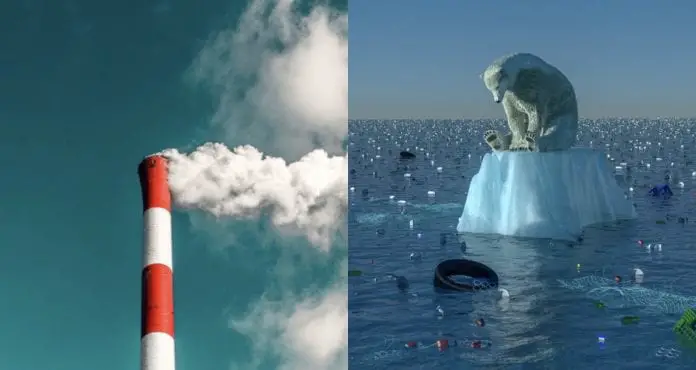The Word of the Year 2019 is revealed, and the word, or term, happens to be “climate emergency”. We’ve heard about global warming and the greenhouse effect for many years now, but the situation must be dire for “climate emergency” to be 2019’s word of the year. With that, perhaps it may be useful for us to pick up a few more terms that could help save the earth. Hopefully by expanding our vocabulary, we’ll be able to make better choices!
Note: All definitions are according to Oxford Dictionaries.
1) Climate Emergency
A situation in which urgent action is required to reduce or halt climate change and avoid potentially irreversible environmental damage resulting from it. This term has been used in increasing urgency all year by scientists and various organisations. Making it word of the year further reflects the urgency of our climate, and how much we need to do.
2) Global Warming
A gradual increase in the overall temperature of the earth’s atmosphere generally attributed to the greenhouse effect caused by increased levels of carbon dioxide, chlorofluorocarbon (CFCs), and other pollutants. CFCs are known as ozone-depleting substances, and also prevent heat from escaping earth’s atmosphere.
3) Biodegradable
(of a substance or object) Capable of being decomposed by bacteria or other living organisms and thereby avoiding pollution. Nowadays, more and more products are made to be biodegradable, including plastic bags.

4) Recycle
To convert (waste) into reusable material. This word is no stranger to us, and there have been plenty of recycling campaigns over the years. Plenty of materials are recyclable, including aluminium cans, paper and plastic bottles.
5) Waste Management
The management of waste materials, usually based on the management of wastes at all stages (production, handling, storage transport, processing, and ultimate disposal) in such a way as to minimise the risks to human health, wildlife, and environmental systems. For us, the best way to start managing our waste to separate them, and determine which can be recycled.
6) Sustainability
Avoidance of the depletion of natural resources in order to maintain an ecological balance. In other words, it’s the ability to exist constantly. We seem to be using more resources than we can produce, and that means our way of living isn’t exactly sustainable. If we want to ensure life on earth, we have to adopt a sustainable lifestyle.

7) Going Green
To make less harmful to the environment. When you go green, you’re taking steps to reduce harmful impacts on the environment. Perhaps the most well-known go-green campaign of all is the “reduce, reuse, recycle” campaign. Other simple ways to go green include saving water and electricity at home, and avoid wasting materials and produce.
8) Compost
Decayed organic material used as a fertiliser for growing plants. Most compost is made from plant material, such as grass clippings, leaves and twigs and even (most) food waste can be composted. Eggshells, coffee filters, fruit and vegetable peel, newspaper… once properly composted, they will make great fertiliser for your garden!
9) Alternative Energy
Energy fuelled in ways that do not use up the earth’s natural resources or otherwise harm the environment, especially by avoiding the use of fossil fuels or nuclear power. Some forms of alternative energy include wind, geothermal, biomass, hydrogen gas, wave and solar energy.

10) Greenhouse Gas
A gas that contributes to the greenhouse effect by absorbing infrared radiation. In relation, the greenhouse effect is a phenomenon where the Earth’s surface warms through a natural process. As greenhouse gases absorb heat, they trap even more heat and warm the Earth even further. This is a problem as natural systems are thrown off balance due to overheating.
11) Conservation
Prevention of wasteful use of a resource. In other words, don’t waste – be tactful of what you use, and how much you use. If everyone is mindful enough to implement these small steps, it can greatly benefit the environment.
12) Organic
(of food or farming methods) Produced or involving production without the use of chemical fertilizers, pesticides, or other artificial chemicals. Also, organic produce cycles resources, promote ecological balance and conserve biodiversity. Basically, it’s healthy for both you and the earth!

13) Carbon Footprint
The amount of carbon dioxide released into the atmosphere as a result of the activities of a particular individual, organisation, or community. Carbon dioxide is a greenhouse gas, and human activities contribute to its production. Almost every activity we do leaves a carbon footprint, because it’s all about energy consumption, which depletes resources.
14) Emission
The production and discharge of something, especially gas or radiation. An emission can be anything that has been released, but most often emission refers to the release of (greenhouse) gases. To reduce greenhouse gas emissions, use LED lightbulbs, save electricity, plant more plants and buy more energy-efficient products.
15) Eco-Friendly
Not harmful to the environment. Recently, there’s been a shift in using eco-friendly products. Plastic usage is being curbed, metal and/or paper straws are introduced, and products are made from eco-friendly or biodegradable materials. All we as consumers need to do is to choose eco-friendly products!
















